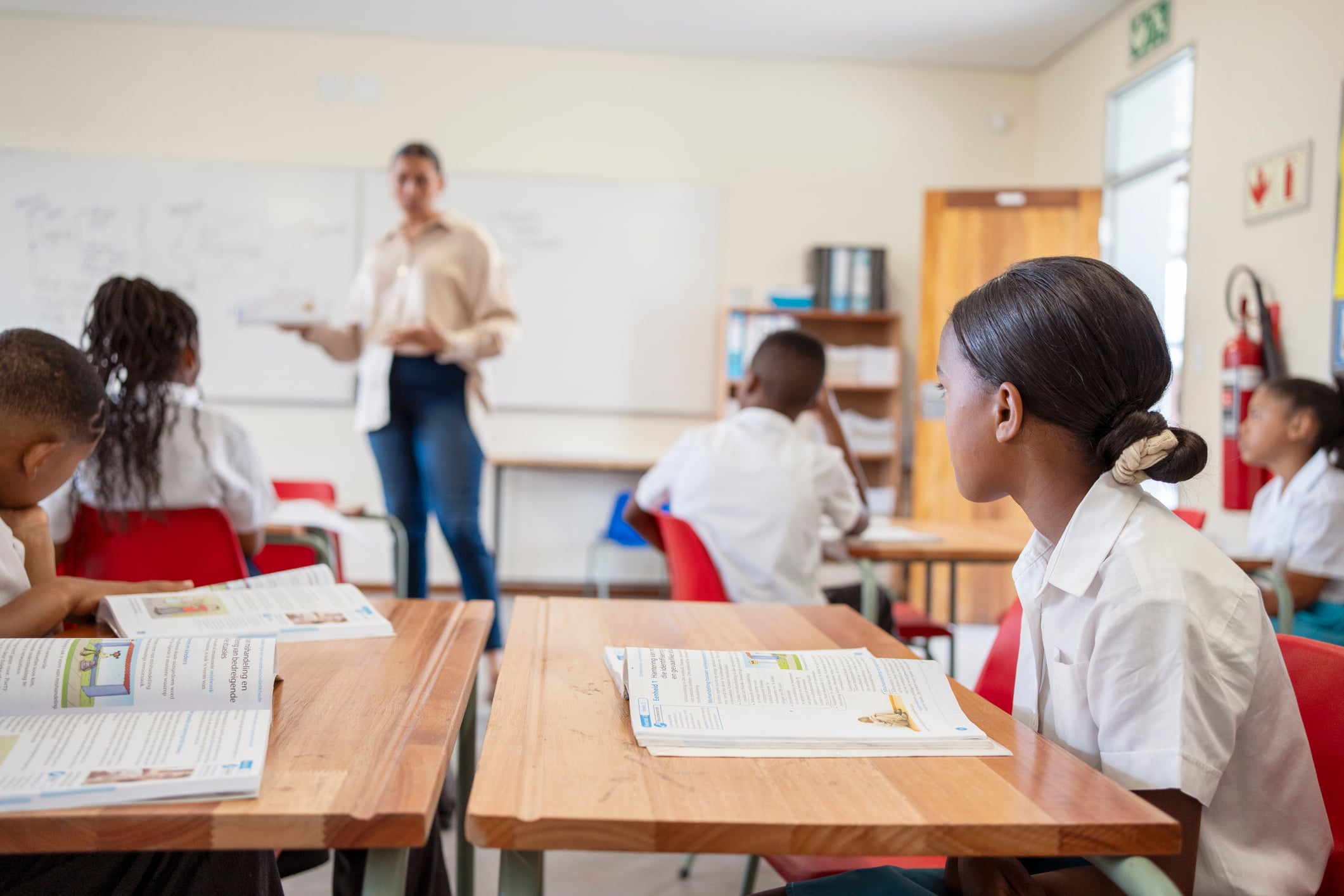Good Debate Topics for KS3
Critical Literacy
Debate provides the chance for children to practice critical thinking skills. While there are plenty of topics to discuss, engaging your pupils in real-world subjects that affect their lives helps them to better navigate the world around them.
4th December 2019

It’s part of a teachers’ job to instil strong debate and negotiation skills in the children they teach so they can form solid judgements about the world as they move into adulthood. With this in mind, finding strong conversational cues from your class’s everyday life helps to create relatable debate topics that incite passion. By igniting a pupil’s interest, it’s easier to stimulate the analytical and research skills they need to debate and communicate their opinions effectively.
Need some help identifying interesting debate topics for key stage 3 children? Here’s some good debate topics for KS3 to get you started.
Debate on Use of Mobile Phones in Schools
Technology has infiltrated our lives in ways we could never have imagined. However, as we’re setting the rules for children’s usage, discussing the topic helps them to form an educated view. To open debates about mobile phones, ask your class their thoughts on:
- Whether mobile phones do more harm than good
- The possibility of being addicted to smartphones
- Should there be more laws controlling what people can access on their phones
- Staying friends without mobile phones
- Allowing children to use social media
Discuss Junk Food
Not only does junk food contribute significantly to obesity, but the lack of nutrients and high concentration of preservatives and sugars also affects our thinking power. In this sense, it seems sensible to discuss the purpose of junk food in our society and how we should deal with the obesity problem. Try discussing this topic by asking your class what they think about:
- Replacing junk food in hospital vending machines
- Increasing tax on junk food
- Imposing an age-limit on certain junk foods
- Making diets mandatory for obese children
- Cooking classes being mandatory
- Growing a school garden for canteen ingredients
Homework Debate
The workload, for both students and teachers, is already strenuous. Is homework really necessary or is it a waste of time? KS3 children often have a lot to say on the topic, so why not start by asking your class these questions?
- What good is homework?
- How much homework should pupils have?
- Should teachers be paid extra for marking? If so, how much?
- If we scrapped homework, what would we replace it with?
- What do you think about parents helping with homework?
- What would be a better use of your time than homework?
Football
Delving into subjects your pupils are interested in will help to keep them engaged. Football is a great topic to debate as it represents how big industry profit work in relation to people’s pleasure and entertainment. These questions could also be tailored to celebrity culture, the film industry, fashion, the music business, and so on. Try asking your class’s opinion on:
- Whether footballers get paid too much
- Which types of advertising should be allowed
- The pay gap between men and women’s football
- Football players as role models
- Racism in international football
- Compulsory charitable donations by top-level football players
Environment
The hot topic of today, your class will no doubt have heard of Extinction Rebellion and school strikes. This is a perfect opportunity to talk about a topic relevant to both young people and the general population as a whole. The current events also show young people the power of a coherent voice, no matter their age or status. When it comes to climate change and environmental debates, try opening discussions on:
- Fines for not recycling
- Switching to renewable energy in schools and as a whole country
- Government subsidies for fossil fuel companies
- The use of chemicals in agriculture
- Humans as the cause of climate change
- Free public transport to discourage driving
Grades
The question around the usefulness of grading systems has come to the forefront of educational debate worldwide. With Singapore having abolished the grading system, it opens the debate up to what good our grading systems do, and whether they’re really of any use whatsoever. Opening conversation about this with your pupils, try asking their thoughts on:
- Abolishing grades
- Grades being easier than years before
- The subjectivity of the grading system
- What would replace the grading system
- Incorporating extra-curricular activities into the grading system
- Using tests to determine grades
Home-Life
While debating world topics is important, encouraging children to master the art of debate and negotiation in their own lives helps them to manoeuvre the world at a later age. By teaching children the skills to debate and negotiate chore schedules, bedtimes, and pocket money, we create future adults that can confidently discuss pay rises, working hours, and relationship set-ups, etc. Talk to your pupils about:
- Age-appropriate rewards for chores
- The need for pocket money
- Screen time before bed
- Bedtimes
- The distance they are allowed to travel alone
- Part-time jobs for young people their age
Summer Holidays
The introduction of academies across the country has already altered school holidays. While long summer holidays were appropriate for the times when children worked in fields, nowadays parents often struggle to keep children amused or pay for childcare. For kids, they live for the summer, but it can also cause ‘Summer Learning Loss’, which sets back their educational progress. Try encouraging your class to give their opinions on:
- The benefits of long summer holidays and the downsides
- Replacing long summer holidays with a week’s holiday once a month
- How long summer holidays affect poorer families
- Banning family holidays in term time
- Compulsory work experience/internships for secondary school children in the summer
- The benefits of summer school
Why not introduce a weekly debate to your classroom? Inviting your pupils to bring topics they’ve found interesting. Encourage them to engage with newspaper and daily events, but remember to tailor these topics to a KS3 level of interest.
Find more debate topics for KS3 here and for KS2 here.
Did you know that as part of our complete solution printable debates based on the week’s news stories in First News are available to add to your school’s subscription. Find out more.
Interested in First News?
First News reaches millions of young readers every week, at home and at school. Our age-appropriate news stories and activities spark curiosity, build media and information literacy skills and empower children with the tools to navigate the world.



